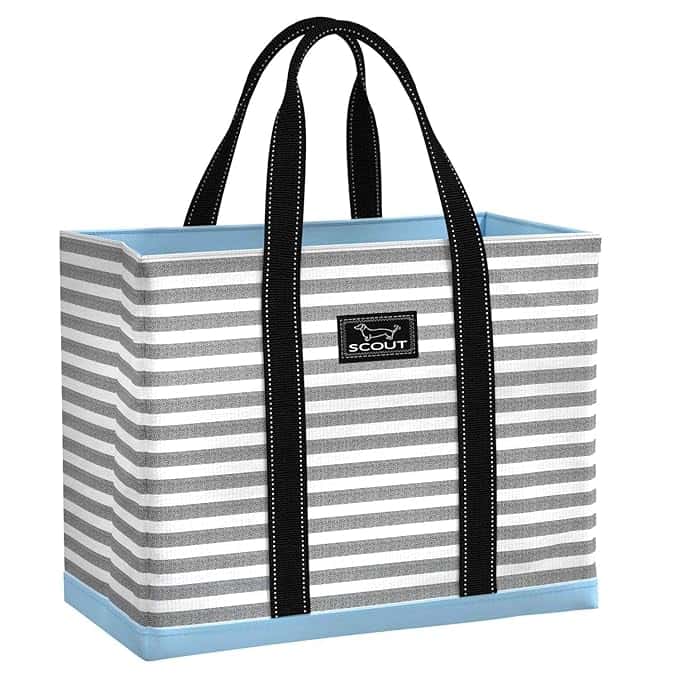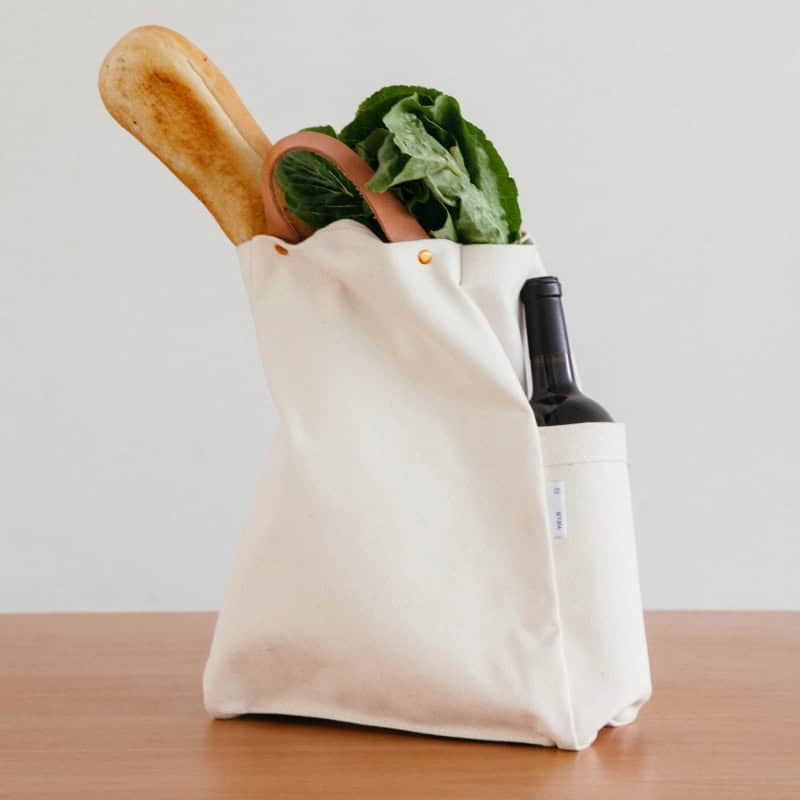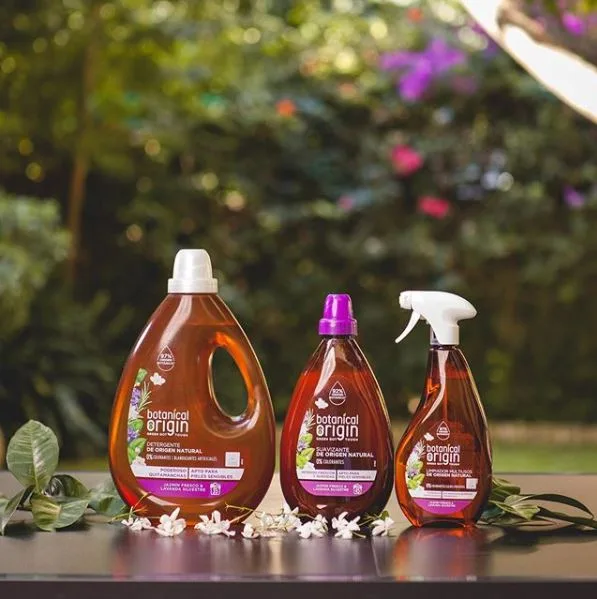From the Great Pacific Garbage Patch to the streets of your hometown, plastic bags are a global problem. These lightweight bags, often handed out freely at stores, are used for an average of just 12 minutes before being discarded. The consequences of this throwaway culture are severe, leading to overflowing landfills, polluted oceans, and harm to wildlife.
But there’s hope. Reusable grocery bags are a simple solution that can make a big difference.
In this article, we’ll examine the statistics, the impact, and the benefits of switching to reusable bags. We’ll explore how these unassuming heroes tackle the plastic bag problem and discover the simple yet powerful impact they can have on our planet.
Let’s begin with the environmental impact of single-use plastic bags, and understand why switching to reusable grocery bag options is crucial.
The Environmental Impact of Single-Use Plastic Bags

The statistics surrounding plastic waste are staggering. Each year, the world uses an estimated 500 billion plastic bags, with only a small fraction being recycled. The rest often end up in landfills, oceans, or as litter in our communities.
Some other devastating statistics include:
Annual Use: The average American family takes home almost 1,500 plastic shopping bags a year (Eco-Friendly Habits).
Recycling Rate: Less than 5% of plastic bags are recycled in the US (Eco Friendly Habits).
Decomposition Time: A single plastic bag can take up to 1,000 years to decompose in a landfill (Eco Friendly Habits) (Biological Diversity).
Also Read: Biodegradable Dustbin Bags: Everything You Need to Know
Long-Term Impact on the Environment

Plastic is non-biodegradable. Which means, it cannot compost in the ground, and stays on the surface of the Earth for centuries. You must have seen pictures and videos of fish ingesting plastic waste in oceans and dying on the shores. The long-term effects of plastic bags are profound.
On land, it’s a common sight to see landfills of plastic waste. These plastic bags clog waterways, harm wildlife, cause soil pollution, and contribute to visual pollution.
How can you make things better? Well, the world uses 5 trillion plastic bags each year, and you can make a change by swapping those bags for reusable grocery bags.
Here’s a comparison between single-use plastic and sustainable grocery bags to help you be part of this sustainable movement of reusable grocery bags.
Also Read: Top 9 Certified Compostable Garbage/Trash Bags for a Greener Home
What Are Reusable Grocery Bags?

Reusable grocery bags are bags designed for repeated use, made from materials that are more durable and environmentally friendly than single-use plastic. Reusable hand bags come in a variety of materials, each with its own set of advantages:
Cotton: Natural and biodegradable, cotton bags are strong and washable
Jute: A natural fiber that is durable and has a low environmental footprint.
Polypropylene: A type of plastic that is recyclable and often used for its strength and durability.
Recycled Materials: Bags made from recycled plastics or fabrics help reduce waste and promote recycling.
Types of Reusable Grocery Bags You Can Buy

Reusable grocery bags come in a variety of styles and sizes to suit different needs:
Standard Grocery Bags: Typically larger and stronger than plastic bags, these reusable shopping bags are typically designed to handle the weight and bulk of a full shopping trip. They often come with reinforced handles and sturdy bottoms to prevent breakage.
Tote Bags: These reusable grocery tote bags are versatile bags that can be used for shopping and other purposes, like weekend getaways, beach hopping, or sleepovers, etc. They are often made from materials like canvas or cotton and can be easily washed and reused.
Produce Bags or Reusable Handbags: Handbags are smaller and more portable, ideal for quick trips or carrying items other than groceries. They are fashionable and can be used as an everyday accessory.
Having explored what reusable grocery bags are and their types, let’s look at the numerous benefits they offer, from environmental to economic and practical advantages.
Also Read: A Complete Primer on Using a Compost Bin
Why You Should Use Reusable Grocery Bags
Switching to reusable grocery bags is good for the people and the planet. From saving money to reducing your dependency on single-use plastic, using a reusable hand bag every once in a while is a good habit to adopt. Here are the leading benefits of using reusable grocery bags:
Environmental Benefits
Reduction in Plastic Waste: By using reusable bags, you can significantly cut down on the number of plastic bags that end up in landfills and oceans.
Sustainable and Eco-Friendly Alternative: Reusable bags are designed to last for years, making them a sustainable choice for the environment.
Decreased Dependency on Single-Use Plastic: Promoting the use of reusable bags helps reduce the overall demand for single-use plastics.
Practical Benefits
Cost Savings Over Time: While reusable bags may have a higher upfront cost, they save money in the long run by eliminating the need to constantly purchase new bags.
Durability and Convenience: Reusable bags are generally much stronger than plastic bags, and able to carry heavier items without tearing.
Versatility in Uses: Beyond groceries, these reusable handbags can be used for various purposes such as carrying books, gym clothes, or beach bags.
Now that we have discussed the benefits, the next section will guide you in choosing not just eco-friendly, but the best reusable grocery bags based on various factors and available brands.
Also Read: How Environmentally Conscious Recycling Can Change Your Life?
The Single-Use vs. Reusable Grocery Bags
In contrast, reusable hand bags, made from durable materials like cotton, jute, or recycled plastics, can be used hundreds of times. This drastically reduces the number of single-use bags needed and minimizes their environmental footprint.
| Feature | Single-Use Plastic Bags | Reusable Grocery Bags |
| Material | Thin plastic (polyethylene) | Cotton, jute, polypropylene, recycled materials |
| Usage Duration | Typically used for about 12 minutes | Can be used hundreds of times over several years |
| Environmental Impact | High; contributes significantly to plastic waste and pollution | Low; significantly reduces plastic waste and pollution |
| Decomposition Time | Up to 1,000 years | Biodegradable materials decompose much faster; non-biodegradable materials are recycled |
| Cost | Generally free or very low cost at the point of purchase | Higher upfront cost, but cost-effective in the long run |
| Strength and Durability | Weak; prone to tearing and breaking | Strong; designed to carry heavier loads without tearing |
| Wildlife and Marine Impact | Harmful; often ingested by animals, causing injury or death | Minimal impact when disposed of properly; promotes better wildlife health |
With an understanding of the environmental impact, let’s move on to what reusable grocery bags are, including the materials used and the various types available.
Buy Reusable Grocery Bags Online
Some of the reusable grocery bags and reusable hand bag alternatives to non-biodegradable plastic bags from top-rated brands include:

Set of Two for $52.00
The Original Deano Tote Bag is an iconic best-seller, in circulation since 2004. Known for its versatility and durability, the bag is designed with a stable, burst-proof bottom, heavy-duty straps with comfort grip handles, and an interior zipper pocket with a metal D-ring, it folds flat for easy storage. Made from all-weather woven fabric, it’s easy to clean and maintain.

$14
The original and best-selling reusable bag is designed for versatility. The Standard Baggu is not just for grocery shopping; it’s perfect for carrying anything and everything. Made from lightweight yet durable nylon, it can hold up to 50 lbs and folds into a compact size, making it easy to keep one with you at all times. The eco-friendly design ensures you can use it over and over again, reducing the need for single-use plastic bags.
Alright! With your chosen reusable grocery bags in hand, the next step is to learn how to use and maintain these sustainable bags effectively. Let’s move on to some practical tips for doing just that.
Practical Tips for Using Reusable Grocery Bags
Here are some practical tips to help you get the most out of your reusable grocery bags:
How to Clean and Maintain Your Reusable Bags
- Cotton and Canvas Bags: Machine wash in cold water and air dry to prevent shrinking.
- Polypropylene Bags: Wipe down with a damp cloth or hand wash with mild soap.
- Mesh and Produce Bags: Most are machine washable; check the label for specific instructions.
Storage and Organization Tips
- Keep Bags Handy: Store bags in your car, purse, or near the door so you remember to take them with you.
- Fold and Stack: Fold bags neatly and stack them in one place to avoid clutter.
- Designate a Spot: Have a specific spot in your home for reusable bags, making it easier to grab them when heading out.
Incorporating Reusable Bags into Daily Shopping Habits
- Make it a Habit: Consistently use reusable bags every time you shop, whether for groceries or other purchases.
- Set Reminders: Place a reminder on your phone or write a note on your shopping list to bring your bags.
- Encourage Others: Share the benefits of reusable bags with friends and family and encourage them to make the switch.
Having learned how to maintain and effectively use your reusable bags, the next logical step is to know where you can purchase them. Let’s explore some options for buying reusable grocery bags.
Now, it’s time to wrap up and reflect on the positive changes you can make.
Conclusion
Making a difference doesn’t always require drastic changes. Often, it’s the small, everyday actions that add up to a significant impact. Using reusable grocery bags is one of those small changes that can greatly benefit the environment. To find the perfect reusable bags for your needs, consider checking out options from Baggu or Deano.
Switching to reusable grocery bags is a simple yet powerful way to contribute to a greener planet. By reducing plastic waste, saving money, and enjoying the practical benefits of durable and versatile bags, you can make a positive environmental impact. Start today by including reusable bags in your shopping routine and encouraging others to join you in this sustainable practice.
By making small changes like using reusable grocery bags, you can help reduce plastic waste and promote a healthier planet. Start using reusable grocery bags today to make a positive impact on the environment.
Frequently Asked Questions
1. What are reusable grocery bags?
Reusable grocery bags are durable bags made from materials such as cotton, jute, polypropylene, or recycled plastics. They are designed for repeated use, making them a sustainable alternative to single-use plastic bags.
2. Can reusable grocery bags carry heavy items?
Yes, reusable grocery bags are stronger than single-use plastic bags and can carry heavier items without tearing. The brands we mentioned above have reinforced handles and durable stitching to make sure they don’t break apart.
3. How do I clean my reusable grocery bags?
Clean your reusable grocery bags by either washing them with cold water and then letting it air dry. You can also wipe down the bag with a damp cloth/mild soap. Make sure to check the label for specific instructions.







